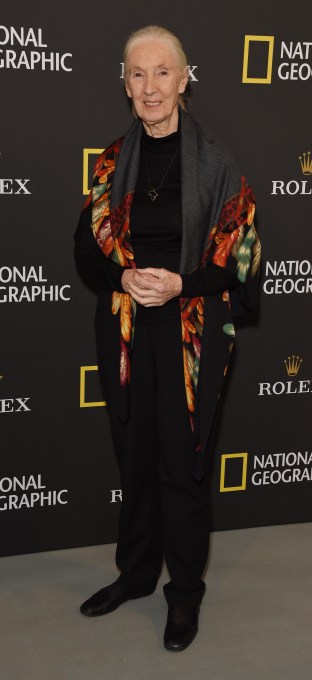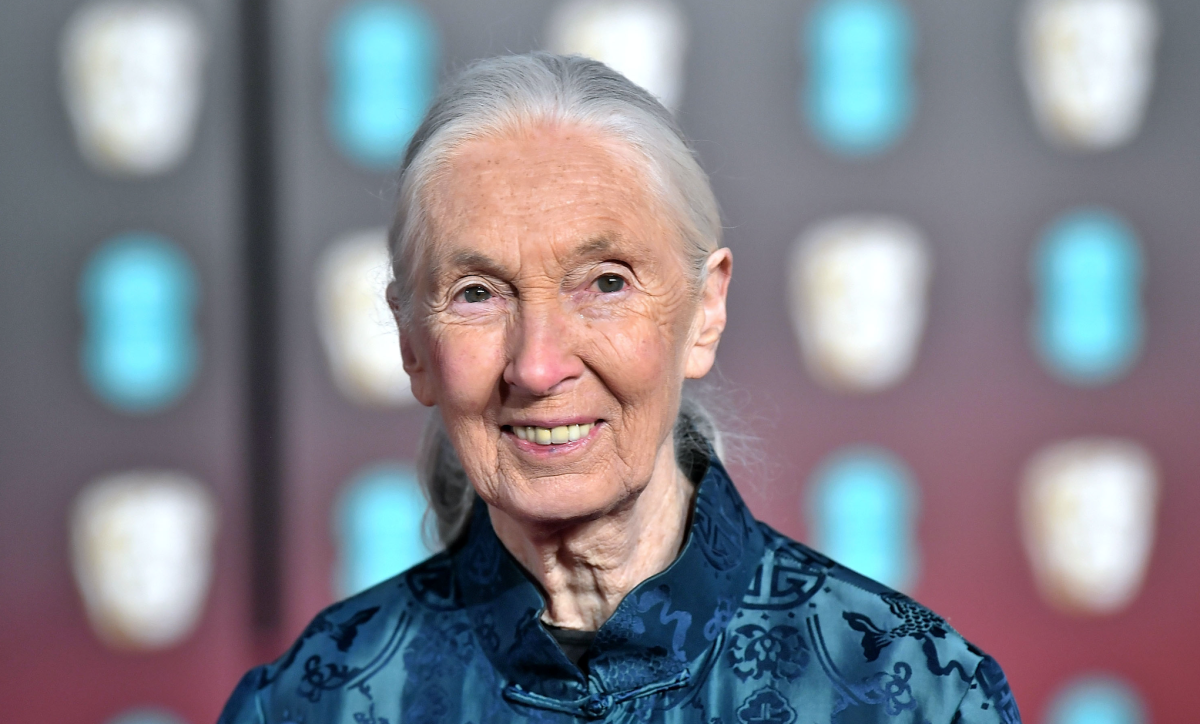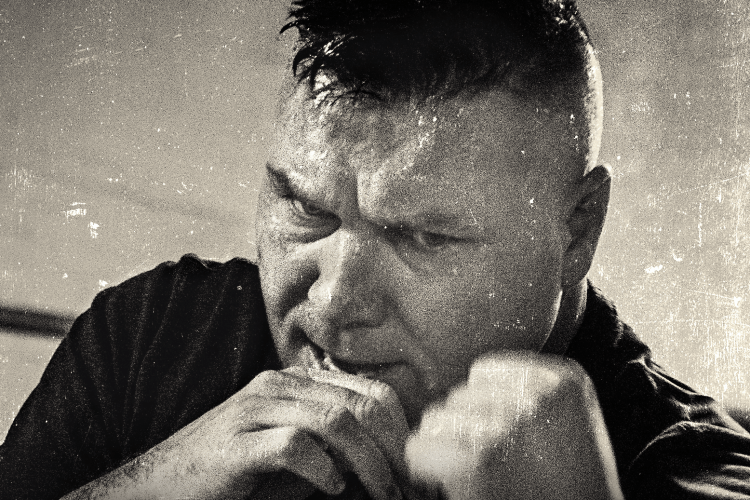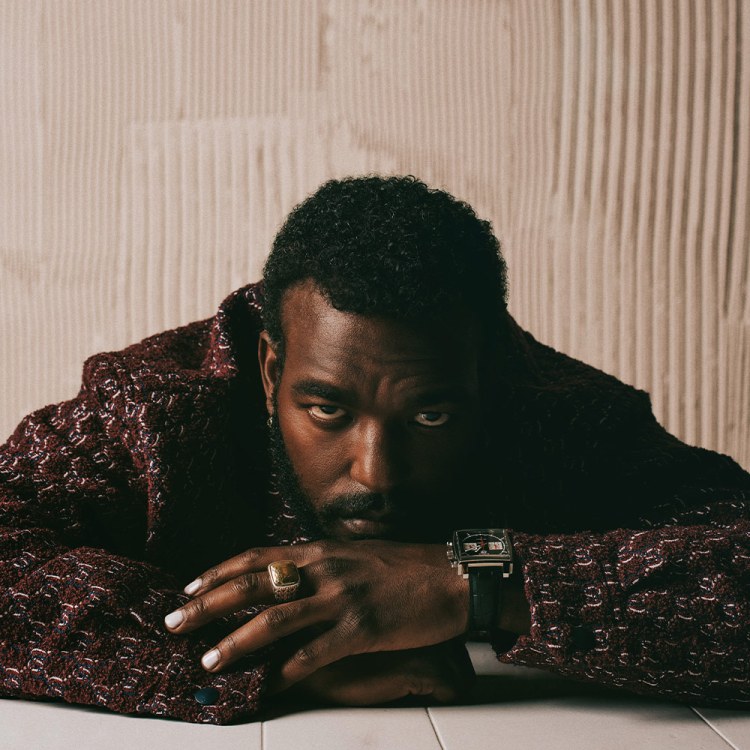Dame Jane Morris Goodall, English primatologist and anthropologist, celebrates her 85th birthday on Wednesday.
Dr. Goodall is known, of course, for her nearly 60-year career studying man’s closest living relative, the chimpanzee; and has campaigned tirelessly for their protection while simultaneously teaching generations about species conservation and the growing environmental crisis. Goodall took a unique and unprecedented approach to studying the creatures in the 1960s by immersing herself “in their habitat and their lives to experience their complex society as a neighbor rather than a distant observer,” according to her website.
A former Director of the Humane Society of the United States, Goodall has been internationally honored and awarded with the Kyoto Prize, Japan’s highest private award for global achievement; the Most Excellent Order of the British Empire; and National Geographic Society’s Hubbard Medal for distinction in exploration, discovery, and research, to name a very few.
To further celebrate Goodall on her birthday, we rounded up the seven most thought-provoking and insightful things she’s said about humanity, conservation, animals and our planet. Check out the list below.

On living harmoniously with one another
“We can have a world of peace,” Goodall said on Peace Day, 2018, which was also the 70th anniversary of the Universal Declaration of Human Rights. “We can move toward a world where we live in harmony with nature. Where we live in harmony with each other. No matter what nation we come from. No matter what our religion. No matter what our culture. This is where we’re moving towards.”
In recognition of the rights of animals
“In what terms should we think of these beings, nonhuman yet possessing so very many human-like characteristics?,” Goodall wrote in her book, Chimpanzees — Bridging the Gap. “How should we treat them? Surely we should treat them with the same consideration and kindness as we show to other humans; and as we recognize human rights, so too should we recognize the rights of the great apes? Yes.”
When reflecting on income disparity
“We can’t leave people in abject poverty, so we need to raise the standard of living for 80% of the world’s people, while bringing it down considerably for the 20% who are destroying our natural resources,” the naturalist said during an interview at the 2002 World Summit on Sustainable Development.
On the ethics of animal treatment
“The more we learn of the true nature of non-human animals, especially those with complex brains and corresponding complex social behavior, the more ethical concerns are raised regarding their use in the service of man — whether this be in entertainment, as “pets,” for food, in research laboratories, or any of the other uses to which we subject them,” Goodall reflected in her text, Through a Window: My Thirty Years with the Chimpanzees of Gombe.
On carnivores
“Thousands of people who say they ‘love’ animals sit down once or twice a day to enjoy the flesh of creatures who have been utterly deprived of everything that could make their lives worth living and who endured the awful suffering and the terror of the abattoirs— and the journey to get there— before finally leaving their miserable world, only too often after a painful death,” Goodall wrote in her 2003 book, The Ten Trusts.
When someone tried to say humans > chimps
“In some ways we’re not successful at all,” Dr. Goodall said in a 2007 interview with Discover magazine when she was asked, “If chimps are so much like us, why are they endangered while humans dominate the globe?”
“We’re destroying our home,” Goodall continued. “That’s not a bit successful. Chimpanzees, gorillas, orangutans have been living for hundreds of thousands of years in their forest, living fantastic lives, never overpopulating, never destroying the forest. I would say that they have been in a way more successful than us as far as being in harmony with the environment.
And, simply…
“The greatest danger to our future is apathy,” Goodall said in an August, 2002, Time interview.
This article was featured in the InsideHook newsletter. Sign up now.
























